It was not a sentence I expected to hear from the 6-foot-5, seemingly gentile giant who was towering over me. “Hey, I’m a nice Jewish boy from the Valley,” David Gregory revealed as we chatted at NBC Studios in Burbank.
The year was 1995, and I was senior producer of a network program that had begun featuring reports from Gregory, then a 24-year-old local TV reporter. He explained that his father was Jewish, his mother was not, and that he’d been raised in a Reform congregation and had become a bar mitzvah.
I filed that information away in my head, and then watched as Gregory made a meteoric rise in the ranks of broadcast journalism. By the time we celebrated his 30th birthday together in 2000, he was guest-hosting the show on which I worked. That same year, he married Beth Wilkinson, who’d been one of the prosecutors in the Timothy McVeigh Oklahoma City bombing trial, which Gregory had covered. Wilkinson is a churchgoing Methodist and did not convert, but she agreed to raise their children Jewish.
After covering George W. Bush’s presidential campaign, Gregory was named White House correspondent for NBC News, a position he held until late 2008, when he became moderator of “Meet the Press.” It was the pinnacle of success for the hard-driving, ambitious Gregory. By August 2014, however, after years of sliding ratings, bad press and behind-the-scenes contention, Gregory and NBC parted ways.
Some years ago, I’d heard through the Jewish grapevine that Gregory had joined an informal Torah study group in Washington whose members, at various times, included journalists Jeffrey Goldberg, David Brooks and Franklin Foer, along with ambassadors Michael Oren and Martin Indyk. Bush had heard the same rumor, and one day asked Gregory, “How’s your faith?”
That question has now become the title of Gregory’s thoughtful and compelling first book, “How’s Your Faith? An Unlikely Spiritual Journey.” He writes movingly about his often-difficult childhood as the son of Don Gregory, a sometimes-intimidating film and theatrical producer (who changed his last name from Ginsburg), and Carolyn Surtees, an account manager who struggled for years with alcoholism, culminating in her arrest for drunk driving while 15-year-old Gregory sat in the car.
Gregory’s book chronicles his serious study of Judaism and spirituality in recent years with Modern Orthodox scholar Erica Brown, and writes honestly about the continuing challenges he and Wilkinson face in raising their three children: son Max and twins Ava and Jed.
I spoke with Gregory as he embarked on a five-month national book tour.
Steve North: You grew up attending the Synagogue for the Performing Arts in Beverly Hills. How often did you go, and what was that scene like?
David Gregory: The whole environment there could be easily mocked, but was actually really warm and gives me great memories. High Holiday services were at the Directors Guild building, with the all-glass façade and the plush lobby, and the Oscars and pictures on the wall. It was such a lovely auditorium.
Red Buttons was there, and other character actors and commercial actors. I have this distinct memory of heavily jeweled Jewish women in Beverly Hills and how good they smelled during the High Holidays!
My sister and I went to Hebrew school there during the week and to Sunday school for years. Rabbi Scott Sperling would talk about the Torah and we would sing, but he would also encourage me at playing baseball, with my Steve Garvey batting stance. He understood that that was a way to keep me involved.
It was a good experience that gave me a sense of identity and cultural awareness. Also, I grew up in the San Fernando Valley — I was born in Tarzana, lived in Encino and Van Nuys. I was surrounded by Jews; I went to school mostly with Jews, so I was in the thick of the Jewish community there.
SN: And what was the level of Jewish observance in your home life?
DG: What I remember most is going to [visit] our family in New York. My father’s mother was a Shefrin, and the Shefrin family was very organized, with many relatives in New York and New Jersey. We became very close to all those cousins when I was a kid, and we often spent Passover with them.
At home in Los Angeles, we celebrated Christmas and we did not observe Shabbat in any way. I have some faint memories of Passover seders at my dad’s house. I was bar mitzvahed, my sister was bat mitzvahed, and those were certainly meaningful events, although not as meaningful as my adult path.
 SN: What do you remember about your bar mitzvah?
SN: What do you remember about your bar mitzvah?
DG: The really warm part was having a Shabbat dinner for the out-of-town family … the relatives from New York and some friends. It was the beginning of what I’ve come to adore about Friday night, which is that very special family meal that feels different.
Also, my bar mitzvah was kind of over the top. It had a New York theme — I wore a white dinner jacket and a red bowtie and came into my party to Sinatra singing, “New York, New York.” So that part was kind of funny. It was certainly an enjoyable time, and I think about it a lot now, because our oldest son, Max, will be bar mitzvahed in the middle of November.
SN: You say that you felt a longing for more spirituality in your life as early as age 11. How did that manifest itself?
DG: I understand my spiritual journey as an adult, in part, to first make sense of what happened during those years. The absence of a spiritual life or belief manifested itself at that time in a kind of emptiness.
My mother’s drinking was the backdrop of our life, and we were building a relationship with our dad after they divorced, but I was afraid of him and felt intimidated by him, although I relied upon him a lot. I think I just felt very much independent, on my own and a little bit lost. As I started to grapple with the anger and embarrassment and confusion about my mom’s drinking, I didn’t have anywhere to turn. I felt lost and afraid, during the anxiety of adolescence.
SN: I must say, I had the opposite experience, with a solid family life and an adolescence immersed in the Jewish community … in synagogue, Hebrew school, youth groups and summer camp … there were always friends, counselors, rabbis.
DG: And for me, the Jewish community was not a source of strength or comfort. I had a sense of it being who I was, but not completely who I was. Ethnically, I came to the world a little different. My last name is Gregory; I have an Irish-Catholic mother, and not to traffic in stereotypes about how Jews look, but I’m very tall, I had red hair and freckles. … I looked like an Irish kid. I did go to Camp Kinneret in Agoura Hills, a day camp, but it wasn’t a religious camp.
So for me, I wasn’t a part of the Jewish community other than just being Jewish. You’re describing an inclusion in Jewish community that was actively organized around you being Jewish and doing Jewish things. I just had Jewish identity because most of the people I knew were Jewish! But it didn’t go beyond that.
SN: So you had the option to not identify as Jewish, if you chose to. You know, in Yiddish, there’s a saying that it’s “shver tzu zein a Yid,” it’s hard to be a Jew. Why choose that?
DG: Well, the fact that I didn’t hide that I was Jewish was a big part of my life. But my identity was more about my father. I remember having a conversation with him when I was working as a reporter in Sacramento [in 1994]. It was Yom Kippur; I went to services, but I wasn’t going to fast. And my dad said, “I can’t tell you what to do, but I think it’s important that you fast.” And I was sitting in my apartment thinking, “What does it mean to me to be Jewish?” I needed to figure out the answer to that question. I’m not going to be this, or do this, just because it would please my father. So I felt that pull, and I had to figure it out for myself.
SN: You don’t really address the issue of patrilineal descent in the book. The Reform and Reconstructionist movements consider you fully Jewish, but the Orthodox and Conservative movements still use the traditional “Jewish mother” threshold.
DG: I thought a lot about this in the early going. I remember saying to Rabbi Joseph Telushkin, “Do you think I ought to officially convert?” And he looked at me and he said, “Exactly who would you be doing that for? For some Orthodox or Conservative rabbis at the beit din who would convert you? Why?”
I guess I feel now that I live a Jewish life. I’m trying to become a better Jew, and I think I have a legitimate place within the Jewish community. I have a commitment to the Jewish people moving forward; I’m trying to raise Jewish children and, hopefully, Jewish grandchildren. I feel I’m who Moses was talking about just as much as anyone else, when he said, “For all those who are gathered here, and for those not gathered here, as well, you’re to take heed of God’s commandments.”
So, in that sense, I’m not terribly worried about who I’m Jewish for, within the Jewish community. I know who and what I am.
SN: What has it been like for you to delve into Jewish texts and thought on an adult level?
DG: It’s been incredibly satisfying. What I’ve discovered is, if you want a relationship with God, you have to get to know each other a little bit, and you can do that by listening to God through the text, and understanding who and what He is … as unfathomable as God may be.
SN: President Bush’s question to you, “How’s your faith?” can be taken in different ways. Are we defining faith here as a belief in God? If so, what kind of God? Because, as you know, the Jewish view ranges from the Orthodox interventionist Supreme Being who brought us out of Egypt and remains involved in the world to this moment, to the Reconstructionist concept, which dismisses a supernatural God and focuses on the force in the universe that impels us to have a conscience and do mitzvot.
DG: It’s a really thoughtful question. I have come to know God in a personal way, a God who is present in my life and active inside of me, who bears witness and who inspires me, who I think is at work in the world. I don’t real-
ly know the answer to the level of intervention. I just know that God is present, in both joy and in pain. I don’t know that God is capable of keeping bad things from happening, maybe God was at a certain point, but I think the realm of the supernatural is to experience transcendence … to experience God’s love … to know who and whose I am.
SN: When most people lose their jobs, they have to tell their family and friends, and it can be embarrassing. You lost your dream job in the most public way imaginable. How did your newfound knowledge about Judaism and spirituality come into play when that happened last year?
DG: In the beginning, it helped with a sense of perspective. I felt the love around me, I felt God’s presence, I knew I was at peace and that I was OK. It helped me stay above the fray. I thought about what kind of behavior I wanted to model for my kids at that moment.
So when I was writing the tweet announcing that I was leaving NBC, I looked at it as an opportunity to behave in a way that God expects me to behave, and to seize the moment. Rather than be bitter or mad, I thought, “Here’s an opportunity to try to be big, to be the person I’m trying to be.” So in that way, I think my faith was present, I think God was present for me.
But faith didn’t always hold me. I’ve gone through real struggles with identity over this past year, thinking, “Who am I? If I’m not this person who has some celebrity and this fancy title and is on television and the trappings of all of that, do I still matter?”
I made mistakes, and I was unhappy at various times, and I have to admit, that’s where my faith didn’t hold me, because I hadn’t become as grounded in faith as I hope to become.
That whole period has been incredibly humbling to me, because it said to me, “You have to get right with the fact that who you are, is not what you lost.”
SN: When it first became known in Washington that you were attending a Torah study group, someone wrote an article titled “David Gregory Finds Religion.” I’m guessing you might describe it a bit differently.
DG: I think what I have found is a truer identity in faith. I have reconnected with the faith I grew up with, and I’ve come to better understand what it means to be a person of faith and to have a deeper spiritual identity. I’m rooted in my religious faith and tradition more than I was, and I’m deeper along the path of spiritual growth.
What I’ve discovered is that who I am today is not as important as who I am becoming. I hope I’m moving in the direction of becoming the person that God intends me to be. But that’s now the work of my lifetime.
Steve North is a longtime broadcast and print journalist.








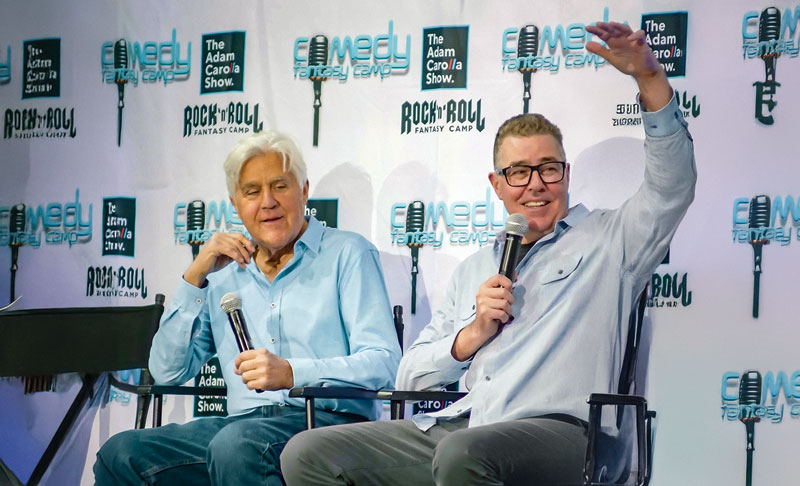

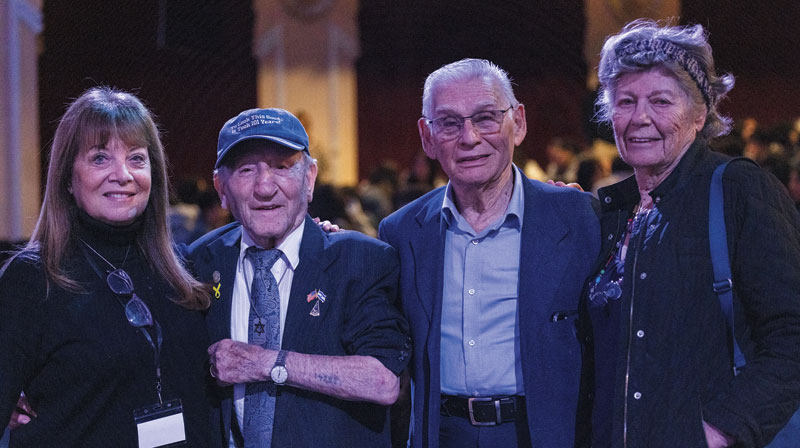

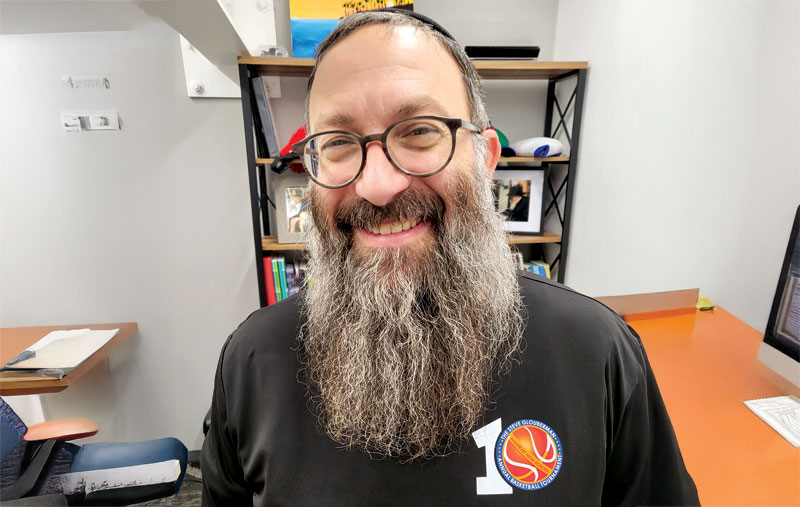

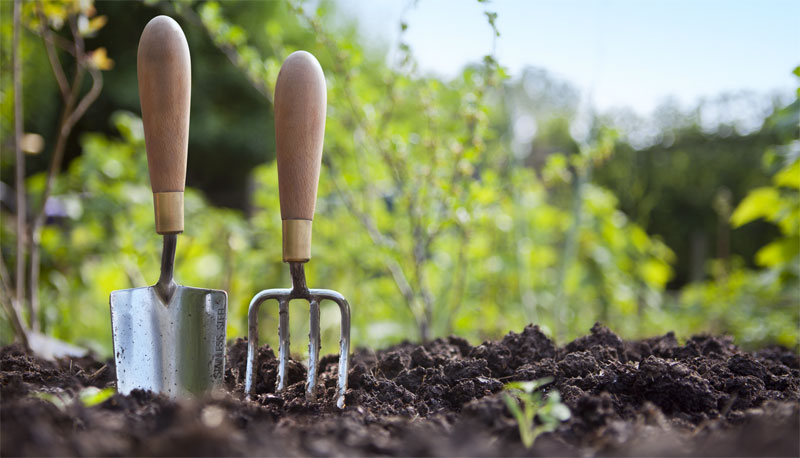
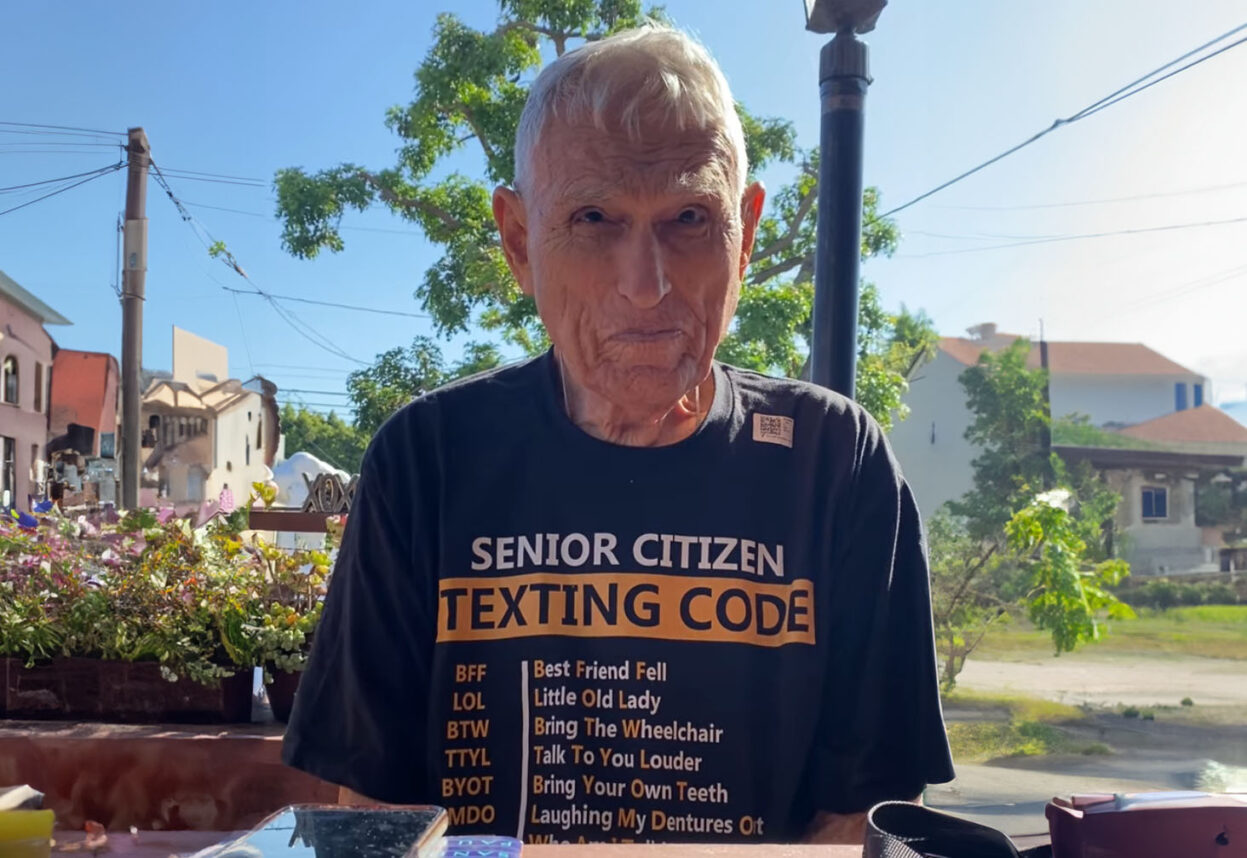
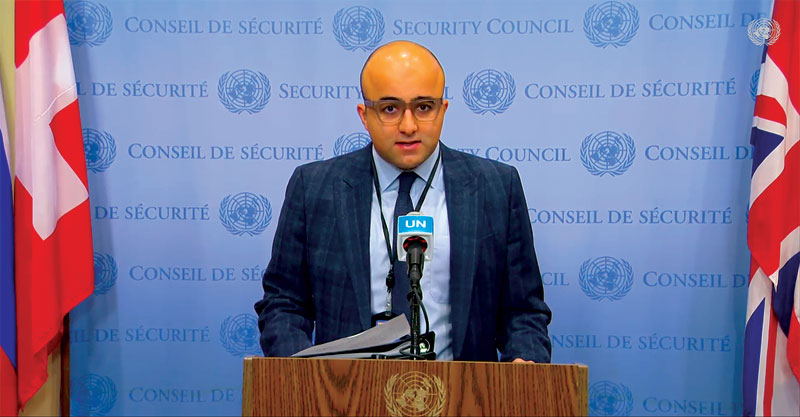




 More news and opinions than at a Shabbat dinner, right in your inbox.
More news and opinions than at a Shabbat dinner, right in your inbox.